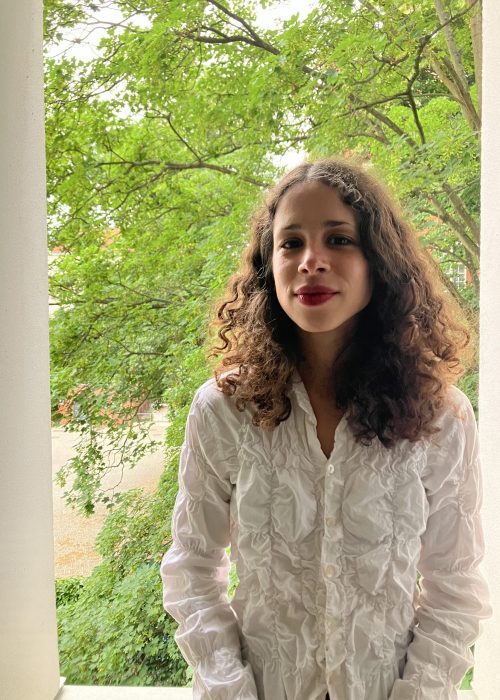2025
Project: Filiation and Alterity: On Frantz Fanon and Essedik Jeddi
Dr. Saniya Taher
( Postdoctoral Fellow (Madness, Media, Milieus. Reconfiguring the Humanities in Postwar Europe (VolkswagenStiftung/ Bauhaus-University Weimar) /2025: Europe in the Middle East, Middle East in Europe (EUME) at the Forum Transregionale Studien/ Germany)
Saniya Taher received her PhD in Fall 2024 from the Department of Comparative Literature with a Designated Emphasis in Critical Theory at the University of California, Berkeley. Her work situates Fanon as part of the archives of Middle East and North Africa, forging a South-South intervention in contending with the question of coloniality and anti-colonialism in its particular national specificity as well as global dimension. She holds an affiliation with the research project Madness, Media, Milieus. Reconfiguring the Humanities in Postwar Europe, funded by the Freigeist Fellowship of the VolkswagenStiftung, at Bauhaus-University Weimar. Previously, in Spring/Summer 2025, she was an affiliated post-doctoral fellow at the research program Europe in the Middle East, Middle East in Europe (EUME) in Berlin, Germany.

Project IRF III : Memory & Justice
The research project “Filiation and Alterity: On Frantz Fanon and Essedik Jeddi” stages an encounter between Martinican-Algerian psychiatrist, intellectual, and revolutionary Frantz Fanon (1925-1961) and trailblazing contemporary Tunisian psychiatrist, psychoanalyst, and filmmaker Essedik Jeddi (1940). This project, which borrows the title of Jeddi’s own monograph Filiation et Alterite (2011), contributes to a critical engagement with Jeddi’s pioneering psychiatric, psychoanalytic, and psychotherapeutic work by tracing his inheritance, transformation, and rupture with Fanon’s sociogenic approach within the context of postcolonial Tunisia. Centering the underthought dimension of Fanon’s presence and work in Tunisia from 1956-1961, this project elaborates its imprint and afterlife on the formation of the Tunisian psychiatric and psychoanalytic field through Jeddi’s work. The project traces the ways in which Jeddi’s work reckons with the condition of raciality and coloniality as an ontological, sociohistorical, and epistemic structure that in itself inflects the hermeneutics of illness as well as cure. In turning to Jeddi’s work and its filiation and alterity with Fanon’s, the project thus seeks to analyze and elaborate how they understand the work of culture as an integral site of critical elucidation and imaginative transformation that holds the capacity to reshape individual and collective life in light of the political and economic crisis of the postcolonial moment.
